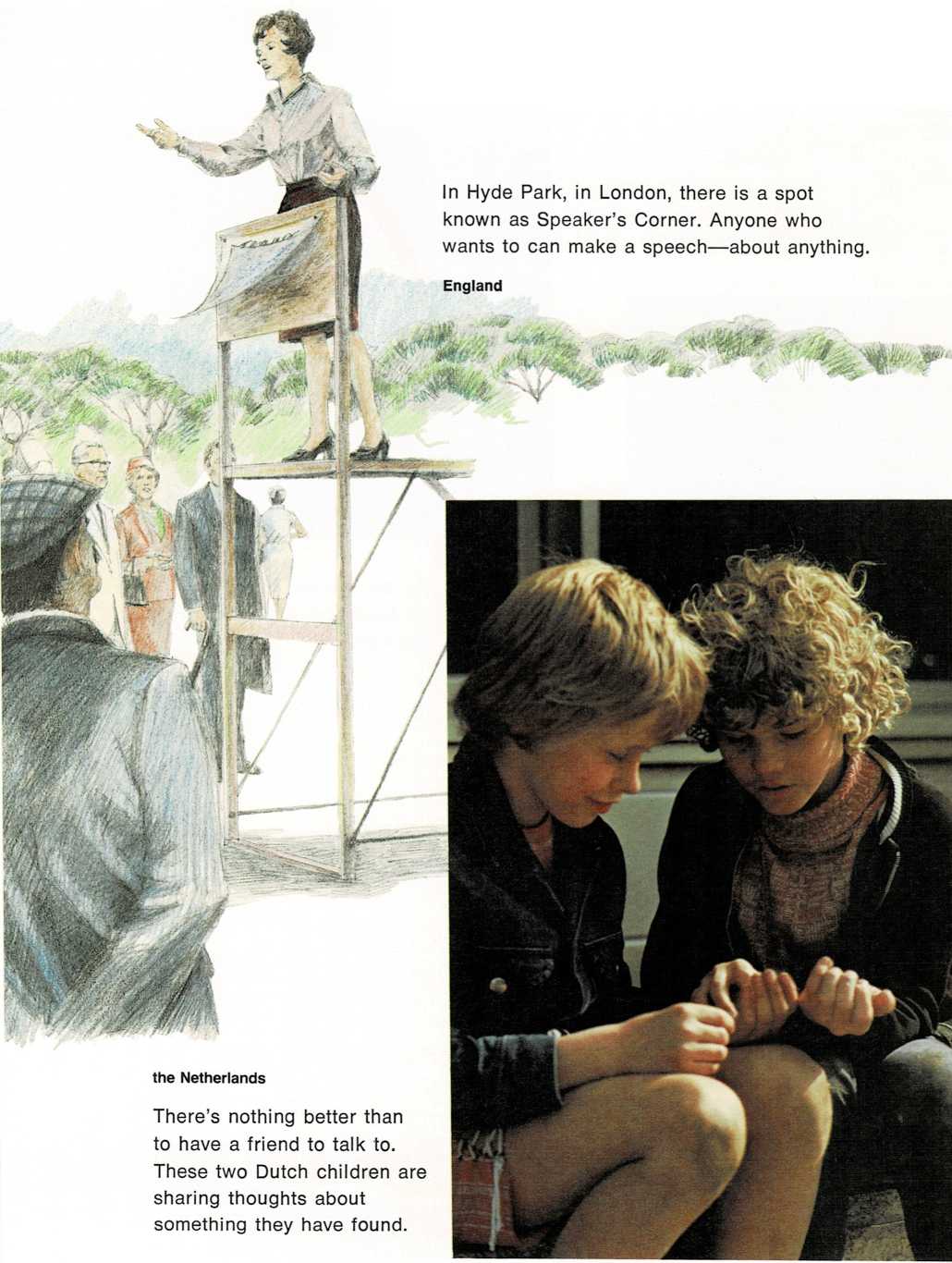We all make different sounds
When a dog barks, we all hear the same sound. But a French boy says that
his dog is saying “gnaf-gnaf!” A German girl says her dog is saying
“wau-wau!” And Japanese children say that their dogs are saying
“wung-wung!” What does your dog say?
If all these children hear the same sound, why do they say the sound
in different ways? It’s because they speak different languages. All
languages are made up of words. And words are sounds that stand for
things. But every language has different sounds.
Suppose you want to tell your best friend that you have a dog. How would
you say the word “dog”? If you speak Spanish, you’d say “pay roh”
(perro). If you speak German, you’d say “hoont” (Jiund). And if you
speak French, you’d say “shen” (chieri). But if you and your friend
don’t speak the same language, he or she won’t know what you are saying.
Sometimes, even people who speak the same language don’t say words the
same way. In the United States, people in Boston speak with a New
England accent. They say “dahg.” People in Atlanta speak with a Southern
accent. They say “dawg.” Both are saying the word “dog,” but in a
different way.
This is true in other countries, too. People from different parts of
England often find it hard to understand one another. This sometimes
happens at the Speaker’s Comer, in Hyde Park, London. Here, anyone can
make a speech about anything. But if the speaker comes from Yorkshire,
in northern England, he may have a Yorkshire accent. If so, many
Londoners may not understand him. There’s no point in talking if people
don’t understand what you say.
Show and Tell


